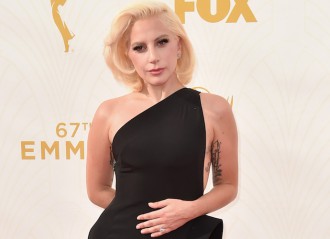Davis Guggenheim On Directing ‘He Named Me Malala’ [EXCLUSIVE VIDEO]
He Named Me Malala, the documentary about the young Pakistani activist Malala Yousafzai, was helmed by noted documentary director Davis Guggenheim.
Davis Guggenheim On ‘He Named Me Malala’
Known for the Oscar-winning An Inconvenient Truth and Waiting for Superman, Guggenheim was approached by Hollywood producers Walter Parkes and Laurie MacDonald, who, upon meeting with Yousafzai, realized that the only way to do her story justice would be with a documentary – not a feature film. At first, Guggenheim wasn’t sure if he’d take the project, but it wasn’t long before Yousafzai’s story won him over.
“I was like well, let me read because I sort of knew the headlines of her story,” Guggenheim told uInterview in an exclusive interview. “And I think what’s special about this movie is people think they know who she is; she’s a girl who was shot on a school bus. But they don’t know the rich, epic quality of her story. That’s what was interesting to me – that there was so much more to her story than what we think we know.”
One of the interesting things that Guggenheim learned through his digging was the meaning behind Yousafzai’s name. The history of the name her parents gave her – Malala – ended up being a self-fulfilling prophesy. It fit the story of her courage so perfectly that Guggenheim believes it couldn’t have been written better in a Hollywood script.
“She’s named after a girl, like a Joan of Arc character in Pashtun lore…. She rallied the Afghan army to defeat the British heroically, but the girl leads them in a charge and is killed,” Guggenheim explained. “The way she leads them is speaking out and saying, ‘It’s better to live like a lion for one day than a slave for a hundred years.'”
“It has sort of an epic quality to it because Malala is named after this girl who speaks out and is killed for speaking out, and Malala speaks out as a young girl. She speaks out against the Taliban and is almost killed for speaking out,” Guggenheim added.
While Yousafzai is known for speaking out against injustices, of which she’s endured many, what Guggenheim finds just as admirable in her is her capacity for forgiveness. Despite the many hardships she’s faced from those who’ve wished to oppress her, she’s not embittered.
“She lives a life without any bitterness, without any anger,” said Guggenheim, in awe. “She was shot on her school bus, she lives in exile from her home, she can’t go home, her father can’t do what he loves to do, which is to teach, and yet they live a really truly forgiving life. To me that’s very inspiring.”
What Guggenheim hopes to get across with He Named Me Malala, which he believes feels as though it’s narrated by its subject, is that those who see it – young women in particular – are inspired to find their own voices.
“I hope people support Malala and her mission, but at the core my movies are about something more simple. In this case, it’s the act of finding your voice and speaking out,” Guggenheim told uInterview. “It appeals to me because I have two daughters who often don’t feel like their voice is relevant, so my hope is that girls everywhere feel like it’s their movie. Girls see that if an ordinary girl in Pakistan can speak out for what she believes that they can do that too.”
He Name Me Malala is currently in select theaters.
Walter Parkes and Laurie MacDonald, who are hollywood producers, they usually do features, ran Dreamworks for nine years, pursued the life rights to her story for a movie and they had the early printing of the book and they were the ones who got the life rights. They went to meet with her and once they sat down with Malala they immediately said this can’t be a movie, who would play her. So, they said it must be a documentary, and when they came home from meeting her in Birmingham, England they called me.
We had met socially and they asked me and was like, ‘So, would you be interested?’ and I was like well, let me read because I sort of knew the headlines of her story. And I think what’s special about this movie is people think they know who she is; she’s a girl who was shot on a school bus. But they don’t know the rich, epic quality of her story. That’s what was interesting to me – that there was so much more to her story than what we think we know.
It’s in the title, the title of the movie is He Named Me Malala and it’s suppose to have some mystery to it, like why is the movie named that, you know? Why is that so important? She’s named after a girl, like a Joan of Arc character in Pashtun lore, a girl who rallied the Afghan army, who was retreating from the British, who was a nurse. She rallied the Afghan army to defeat the British heroically, but the girl leads them in a charge and is killed. The way she leads them is speaking out and saying it’s better to live like a lion for one day than a slave for a hundred years. It has sort of an epic quality to it because Malala is named after this girl who speaks out and is killed for speaking out, and Malala speaks out as a young girl, she speaks out against the Taliban and is almost killed for speaking out.
You say, ‘Wait a minute, how did that happen?’And you couldn’t have written it in a Hollywood movie, and to me that’s sort of the framework for the question of: ‘What is the nature of her greatness? What is the nature of this girl?’
She’s so forgiving. That seems like such a mushy word, but it’s not mushy when you’re with her because it’s true forgiveness. Sometimes we toss that word around; we tell our children to forgive one another. But she lives a life without any bitterness, without any anger. I’m in a world in L.A. where if you get your cold press coffee delivered to you the wrong way you’ve had the worst day ever. She was shot on her school bus, she lives in exile from her home, she can’t go home, her father can’t do what he loves to do which is to teach and yet they live a really truly forgiving life. To me that’s very inspiring.
There was work and travel and all sorts of logistics, which were very difficult. But, this is the hardest movie I‘ve ever made for other reasons. It was a very hard story structure to put together. For a very long time the movie didn’t work. I like to do a cut and show it to people and I would think it would work but then it wouldn’t work and I’d go home and I was miserable because the story is so moving to me, and I wasn’t getting it right.
The story structure is nonlinear, so it cuts back and forth between before she was shot and after she was shot and nonlinear is very hard to do. How do you get the tone right between these two different storylines and the Taliban coming into this small village, and then her life now in Birmingham. It’s very difficult. Ask my wife, she’ll say i was despairing the fact that I could not figure this out.
I had great editors, Greg Finton and Brad Fuller in particular, who carried me through it and little series of breakthroughs, none of which are all that interesting. I really learned that the story should build towards a simple choice of her deciding to speak out and her father deciding to let her. At the core of it, this movie is about not about being shot on a school bus, but about the choice to speak out.
It was so different from other people I’ve done movies about because I think in this time in the 60s and 70s you could put a camera on your shoulder and go into someone’s life and people would just trust you and be more open. Now, I think people are so self-conscious because we watch so much reality television, we’re the keepers of our own story, conscious of how we’re being seen. Malala and her father aren’t that way, and as much as they are public figures and as much as they tell their own story, they have from the very beginning, when they were completely unknown, telling their story was not an act of vanity or self-promotion. They wanted to try to get the world to understand what they were going through and they needed help.
The minute we started the conversation I felt their openness and I think they understood that I was helping them tell their own story. When you see the movie it feels like they’re narrating it.
My movies are sort of a balancing act between this bigger cause like climate change or public education. But, I like those bigger missions to sit outside the actual experience of watching the movie. I hope that people go off and do these incredible things. I hope people support Malala and her mission, but at the core my movies are about something more simple. In this case, it’s the act of finding your voice and speaking out. It appeals to me because I have two daughters who often don’t feel like their voice is relevant, so my hope is that girls everywhere feel like it’s their movie. Girls see that if an ordinary girl in Pakistan can speak out for what she believes that they can do that too.
RELATED ARTICLES
Get the most-revealing celebrity conversations with the uInterview podcast!



![Davis Guggenheim On Directing ‘He Named Me Malala’ [EXCLUSIVE VIDEO]](https://cdn-o9.uinterview.com/wp-content/uploads/2015/10/news-davis-guggenheim.jpg)
 Click here for the 2015 Emmy Awards Best Dressed Photos Slideshow
Click here for the 2015 Emmy Awards Best Dressed Photos Slideshow




Leave a comment